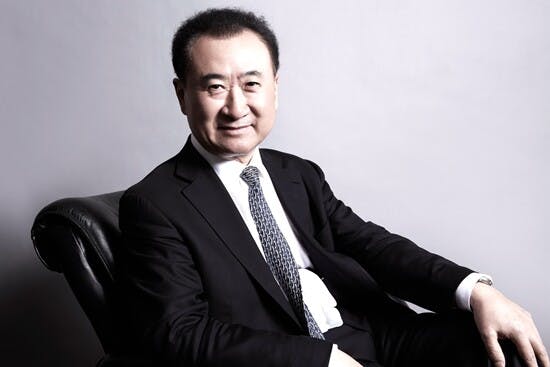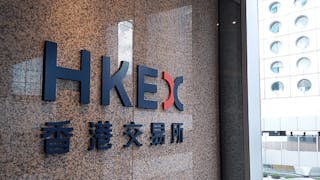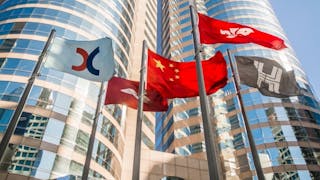Looking back on the monumental moments of China’s sports in 2016, one may recall the instant when swimmer Fu Yuanhui cutely and vividly described her exhaustion after a contest as radiation of “all pre-historic power”. Or the time when coach Lang Ping, China’s iconic volleyball heroine in the 80s, led her legion of young athletes to overcome the Serbians, another upstart.
Now, we can say that similar heroics were accomplished by another group of “players”, who had poured in an unprecedented amount of resources and had hammered in a few spikes to score important points.
The difference is that their battlefields took place in business and M&A markets, not in Olympian stadiums.
For a long time, sports in China was either considered as a “State-directed” mission with the objective to collect as many Olympic medals as possible, or as just leisure activities practiced and enjoyed by the average men and women. No one saw it as a serious, for-profit, business proposition. There was incidental oddity like the emergence of Li Ning both as an Olympic gymnastics champion AND a successful business endeavor. Nevertheless, it is an exception rather than the rule.
However, with the recent growth in wealth and awareness, together with the advocacy of key leaders in the central government, many successful business leaders have turned their attention to sports as a real business. Some are in it for personal likings, some treat it as marketing and advertising tools, while some deem it as content for their media platform.
Sports Investment 2.0
Among the growing numbers of merchants-turned sports promoters, perhaps Dalian Wanda Group, a giant property conglomerate which controls at least three listed vehicles (not counting the recently privatized commercial properties unit), has the longest history in the game.
The “playmaker” of Wanda is none other than Wang Jianlin, an ex-PLA soldier who followed the slogans of the late Deng Xiaoping’s economic liberalization to jump on the bandwagon of property investments quickly. With his unique business models of combining office and retail outlets, Wanda has rapidly grown into a huge name whose logos have become a magnet for countless local governments, city or county alike.
The success of Wanda’s foray into property had long allowed it to branch itself into other areas, the more visible ones being motion pictures (it is called “culture industry” in Mainland China), tourism and, of course, sports. Wang is an enthusiast of sport himself. He has on many occasions said that he goes to the gym every day.
His venture in the sports business is a typical one where hobby and passion seed business practicality. Wanda had long ago in 1993 invested heavily in a Dalian football club which competed in China Jia-A League, China’s then top tier professional football league. The investment brought them four league championships, unparalleled at that time.
The group later shifted focus from investing in a football club to sponsoring the entirely revamped China Super League, and obtained naming right of the league. However, due to a long list of reasons including “unfair refereeing”, the investment and passion in sports subsided dramatically.
However, Wanda showed renewed interest in sports in 2016, which can be described as Sports Investment 2.0. In the space of months, the group concluded mega deals with top tier, international sports properties holders. The initiatives included takeover of the Swiss-based Infront, which has for years been closely associated with FIFA and is the de facto marketing and media distribution arm of World Cup; a very substantial but minority investment in Spain’s La Liga title contender Atletico Madrid; and a buyout of the America’s World Triathlon Corporation, the sport’s ultimate promoter. In addition to these takeovers, it also splashed out generous sums to secure senior partnership and sponsorship rights with FIFA (football), FIBA (baseball) and UCI (cycling).
As these investments were completed relatively recently, and they are grouped under the private arms of Wanda group, it is not clear how profitable these operations are to-date. However, Wang has on many occasions laid claims that these collections of sports businesses, if combined, represent the “world’s biggest sports business”. He is said to have plans to float the unit in 2020. There is little doubt now that the group has been channeling “pre-historic power” into the game.
Spike like a hammer
While Wanda is an old hand in the trade, there is a newcomer whose resources and financial muscle are no less potent.
China Media Capital Group, from Shanghai, was founded in 2009 by Li Ruigang, who had hitherto some very solid years of experience in Shanghai state-owned media groups. His recent break into the scene is so eyebrow-raising that it has earned him a nickname of “China’s Murdoch”.
In its rather short span after coming to life, CMC has via the form of limited liability partnership acted as a financial investor and invested in satellite TV stations (Star TV), media groups (including important titles like Caixin), network of movie theaters (an investment in IMAX China) and a dominant TV station in HK (one of the largest shareholders in TVB).
Despite the emphasis on media space, CMC had also, in its early days, invested and became the single largest shareholder of a sports event and marketing organizer (SECA World).
However, the real jaw-dropping event took place in late 2015 when China Sports Media, one of CMC’s newly acquired subsidiaries forked out 8 billion yuan, 20 times the previous amount, for 5-year media rights to China Super League.
On the heel of this deal, Li, who was among the businessmen who accompanied Chinese President Xi Jinping during an England trip, bought 13 percent stake in the parent company of Manchester City Football Club, one the wealthiest football club in the world.
Looking at the deals, we can say the spikes were as heavy as Lang Ping’s at her career height.







































